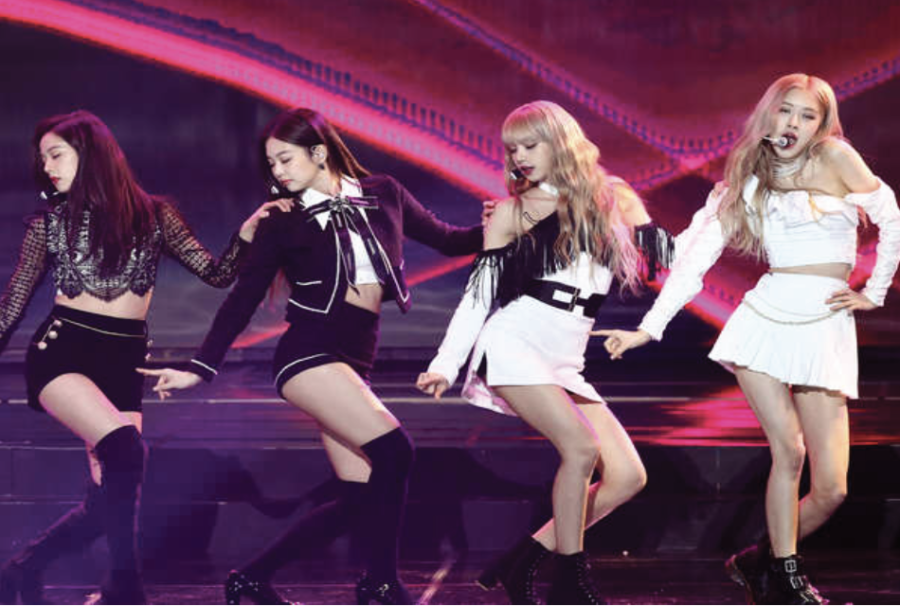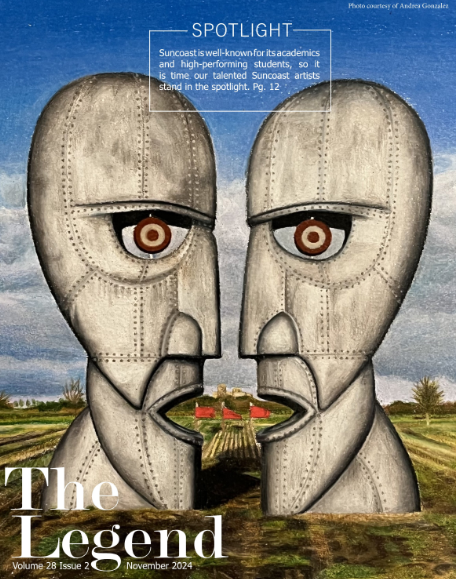Can Kpop Give You an Eating Disorder?
The dangers of diet culture perpetuating pop culture.
The members of Blackpink performing, Lisa and Rosé are the last two on the right.
April 15, 2022
Kpop has quickly become a leading genre in music, with internationally popular groups like Blackpink, BTS and Twice. Korean culture, in general, tends to promote being underweight with strict dimensions each of the Korean singers, known as idols, have to follow. This can lead to Kpop listeners and enthusiasts feeling more insecure about their bodies. This feeling is only increased by the diet culture that perpetuates the Kpop industry. There are many very dangerous diets that idols, whom viewers look up to and idolize, advocate for. Idols like IU, a Korean soloist, had a very dangerous diet, which has led to hospitalization for many people eager to look incredibly thin. I would like to clarify that many idols who are known for following extreme diets talk about how dangerous they are and how harmful they are to a person’s mental health, but the idols still have thin bodies and people still want to participate in such diets to achieve this “idol look”.
There are some idols that do not fit the body standards and advocate for self-love. Idols like Hwasa from MAMAMOO and Swan from PURPLE KISS don’t fit the standard body shape and Hwasa specifically frequently promotes this idea that it is ok to not fit the standard. However, even Hwasa has to maintain certain measurements. Suncoast student Senaia Allen talked about how when Hwasa’s company made her lose a lot of weight for her comeback, Allen felt insecure about her own weight.
“She [Hwasa] wasn’t the ideal body type but she is still so pretty. And recently, they [Hwasa’s label] made her lose all that weight really quickly for her comeback…it made me feel like I was doing something wrong.”
Many Kpop fans have taken to the internet to discuss how damaging Kpop was for their self-esteem. People frequently cite Blackpink members Lisa and Rosé for, unintentionally, leading them to restrict their food and overexercise because of their extremely thin frames. An anonymous Quora user said that they did BTS’s infamous Jimin diet, where you eat only one chicken breast a day to achieve a “Lisa-esque” frame. The problem with this extreme diet, aside from the obvious lack of calories, is that people will get more insecure and more obsessed with restricting food where they don’t stop and continue eating less and less for longer and longer, developing an eating disorder.
80 percent of the students polled don’t experience self-esteem issues because of their understanding of the culture differences between Korea and America. Many have said that they were educated on the pressures of the Kpop industry and were aware of the hours of physical activity idols do everyday to maintain their shape. This knowledge helped them realize that it’s not a problem that they aren’t the same shape as their favorite idols. They have realized that it’s all about the mindset you have, and would rather just appreciate the music, as opposed to obsessing over the differences between an idol’s body and theirs. As student Labiba Chowdhury said, “it can create positive and negative emotions based on who the person is.”
The bottom line is, for people who listen casually, Kpop will not have the same effects as those who eat, sleep, and breathe it. The problem is, there are many who do, and many criticize the discussion of diets because it can lead to fans wanting to recreate it. Fans developing eating disorders is of course not the idol’s faults, it is the industry’s, but I fear that eating disorders and self-esteem issues may become more common in this new era where Kpop is more mainstream.








